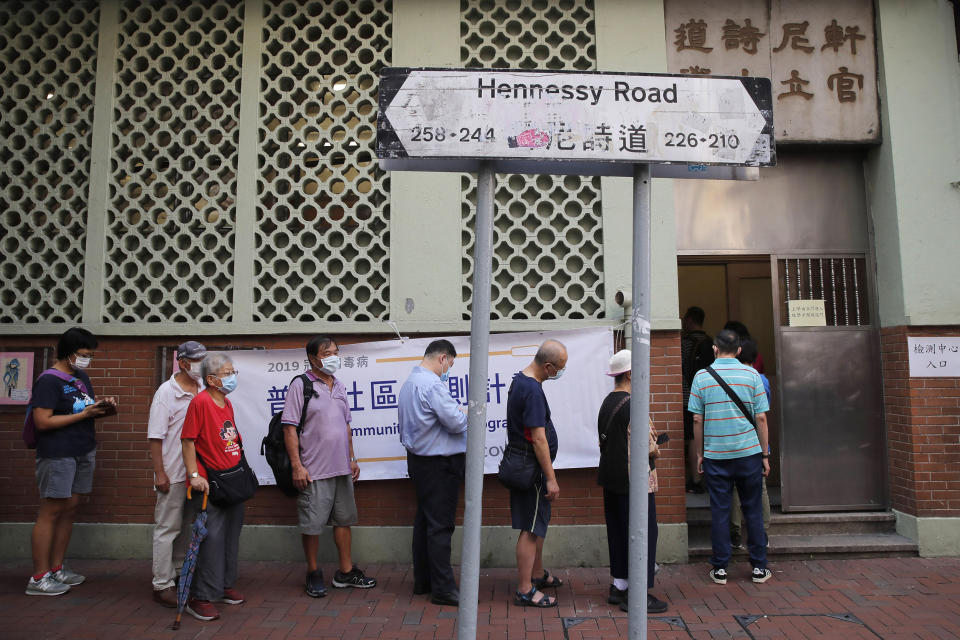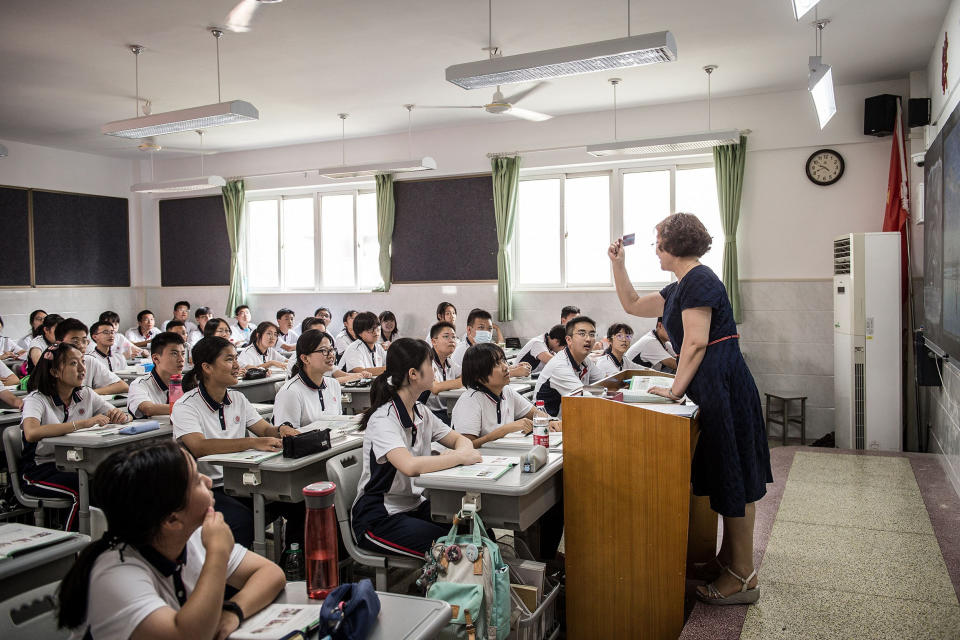As Hong Kong reports 12 new cases, it launches effort to test millions. That's raising eyebrows.
A Beijing-led mass coronavirus testing effort kicked off Tuesday in Hong Kong, with nearly 650,000 people registered to take part amid boycott calls from some of the city's pro-democracy activists and health care workers.
For at least a week, residents will be able to get free nasal and throat combination tests at more than 140 testing centers throughout the city.
Hong Kong tightened its social distancing measures in early July because of spiking case numbers during its third wave of COVID-19 infections, but the outbreak appears to have been brought under control, with 12 new cases reported Tuesday.

But to stave off any new transmission, the government hopes residents will come forward and volunteer to take the free test this week.
Beijing will assist in the testing with a temporary lab and a team of at least 60 specialists, which has led Hong Kong's pro-democracy union of health care workers and some pro-democracy activists, including Joshua Wong, to call for a boycott of mass testing this weekend.
They say that it's not the most efficient way to contain the virus and that DNA samples could be sent to mainland China. The Hong Kong government has denied the claim, saying no personal data will be taken out of the city.
The testing comes at a sensitive time for some Hong Kongers, who decry what they see as Beijing's encroachment on their freedoms.
Hong Kong leader Carrie Lam, who was tested Tuesday, told reporters that the purpose of the program is to identify hidden carriers as soon as possible to stop the spread of the virus.
She denied that the relatively small number of people who had signed up for the mass testing so far, 600,000 out of the city's population of 7.5 million, had anything to do with the level of trust in Hong Kong's government.
"But it does have something to do with people who either don't understand the details of the program, the procedures, the safeguards we have put in place, that they try to cause worries and fears amongst the people, so they will have less confidence in coming forward," Lam said.

Mass testing has brought outbreaks under control in mainland China, said Benjamin John Cowling, a professor at the Hong Kong University School of Public Health.
Authorities in Wuhan, the city in mainland China where the virus emerged this year, tested all of its 11 million residents in May after a cluster of new cases raised fears of a second wave of infections. According to China's health officials, there have been no new cases in Wuhan recently, and the official Chinese news agency, Xinhua, reported that about 1.4 million of the city's students went back to school Tuesday.
"The government in Beijing and Hong Kong have been very enthusiastic about demonstrating this mass testing approach as a good way to resolve and end a community epidemic," Cowling said.
"If it works in Hong Kong, then maybe it will work in other parts of the world. That will be a success story for the Chinese approach for controlling COVID-19," he said.

